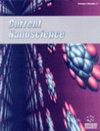全面回顾作为抗癌剂的前景看好的植物成分:不同癌症的生物学机制和应用
IF 1.5
4区 材料科学
Q4 BIOTECHNOLOGY & APPLIED MICROBIOLOGY
引用次数: 0
摘要
:癌症每年夺走约 1,000 万人的生命,仍然是全球死亡的主要原因。传统的癌症治疗方法,特别是化疗和放疗,往往会产生不良反应,如细胞毒性和产生抗药性,给癌症治疗带来了巨大挑战。虽然天然产品在历史上一直用于治疗各种疾病,但最近在抗击癌症相关表现方面的作用却突飞猛进。利用天然产品单独作为抗肿瘤药物或与传统化疗药物结合使用,是减轻这些不良反应的一种很有前景的方法。天然产品的吸引力在于其易得性、多功能性、降低细胞毒性的潜力以及对抗耐药性的能力。各种天然来源的生物活性化合物种类繁多,能够影响各种癌症类型、调节信号通路并改变癌症微环境。值得注意的是,许多生物活性化合物通过靶向特定信号通路,尤其是参与细胞凋亡的信号通路,对转移、血管生成、新陈代谢、增殖和存活能力等关键细胞过程产生影响。因此,天然产品对这些因素的调节会极大地影响癌细胞的行为。本综述探讨了有前景的植物成分作为抗癌剂在肝癌、肺癌、膀胱癌、乳腺癌、白血病和结肠癌等常见癌症类型中的应用。此外,它还探讨了天然化合物的抗癌特性,重点研究了它们对不同癌症的作用机制和有效性,旨在改善癌症管理。本文章由计算机程序翻译,如有差异,请以英文原文为准。
A Comprehensive Review of Promising Phytoconstituents as Anti-Cancer Agents: Biological Mechanisms and Applications Across Different Cancers
: Cancer, claiming approximately 10 million lives annually, remains a leading cause of global mortality. Conventional cancer treatments, notably chemotherapy and radiotherapy, often entail adverse effects, such as cytotoxicity and the development of resistance, posing significant challenges in cancer management. While natural products have historically served medicinal purposes for various ailments, their recent prominence in combating cancer-related manifestations has surged. Utilizing natural products either alone as antineoplastic agents or in conjunction with conventional chemotherapies presents a promising approach to mitigate these adverse effects. The appeal of natural products lies in their accessibility, versatility, reduced cytotoxic potential, and capacity to counteract drug resistance. Various natural sources offer a diverse range of bioactive compounds capable of influencing various cancer types, modulating signaling pathways, and altering the cancer microenvironment. Notably, many bioactive compounds impact crucial cellular processes like metastasis, angiogenesis, metabolism, proliferation, and viability by targeting specific signaling pathways, particularly those involved in cellular apoptosis. Consequently, the modulation of these factors by natural products significantly affects cancer cell behavior. This comprehensive review explores the application of the promising phytoconstituents as anti-cancer agents across prevalent cancer types, including liver, lung, bladder, breast, leukemia, and colon cancer. In addition, it explores the anti-cancer properties of natural compounds, focusing on their mechanisms and effectiveness against diverse cancers, aiming to improve cancer management.
求助全文
通过发布文献求助,成功后即可免费获取论文全文。
去求助
来源期刊

Current Nanoscience
工程技术-材料科学:综合
CiteScore
3.50
自引率
6.70%
发文量
83
审稿时长
4.4 months
期刊介绍:
Current Nanoscience publishes (a) Authoritative/Mini Reviews, and (b) Original Research and Highlights written by experts covering the most recent advances in nanoscience and nanotechnology. All aspects of the field are represented including nano-structures, nano-bubbles, nano-droplets and nanofluids. Applications of nanoscience in physics, material science, chemistry, synthesis, environmental science, electronics, biomedical nanotechnology, biomedical engineering, biotechnology, medicine and pharmaceuticals are also covered. The journal is essential to all researches involved in nanoscience and its applied and fundamental areas of science, chemistry, physics, material science, engineering and medicine.
Current Nanoscience also welcomes submissions on the following topics of Nanoscience and Nanotechnology:
Nanoelectronics and photonics
Advanced Nanomaterials
Nanofabrication and measurement
Nanobiotechnology and nanomedicine
Nanotechnology for energy
Sensors and actuator
Computational nanoscience and technology.
 求助内容:
求助内容: 应助结果提醒方式:
应助结果提醒方式:


